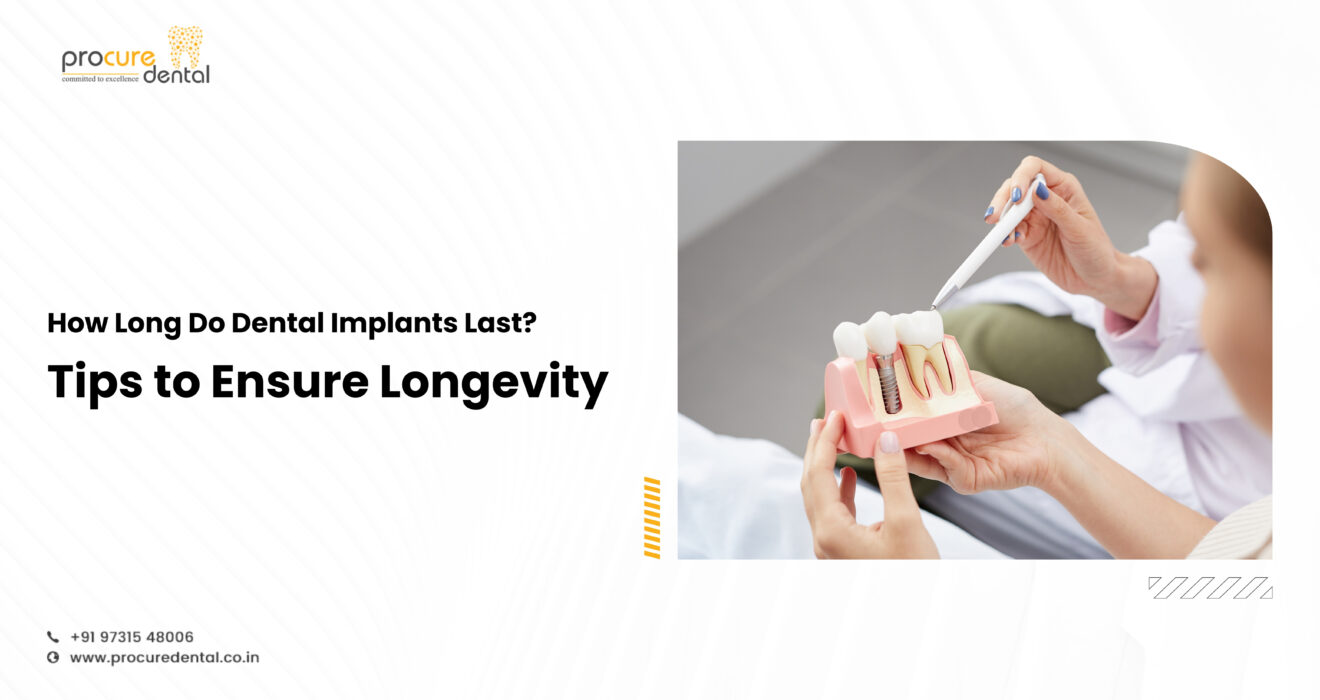How Long Do Dental Implants Last? Tips to Ensure Longevity
Dental implants have become one of the most popular and reliable solutions for replacing missing teeth, and they offer a fantastic blend of function, aesthetics, and durability. But, just like anything else, they need proper care to maintain their longevity. Let’s dive into how long dental implants typically last, the factors that influence their lifespan, and essential tips to make sure they stay in top condition for years to come!
How Long Do Dental Implants Typically Last?
On average, dental implants can last between 15 and 25 years or even a lifetime with proper care. The implant itself, usually made of titanium, integrates with the jawbone in a process called osseointegration. This makes it extremely durable and resistant to decay. However, the visible crown (the artificial tooth that sits on top) may need to be replaced every 10 to 15 years due to regular wear and tear.
Factors That Influence Implant Longevity
While implants have impressive durability, several factors can affect how long they’ll last:
1. Oral Hygiene Habits
Good oral hygiene is crucial. Poor habits can lead to gum disease or infection around the implant, known as peri-implantitis, which can compromise the implant’s stability.
2. Smoking
Smoking negatively impacts the healing process and can weaken the implant’s integration with the jawbone. Smokers may experience reduced implant success rates.
3. Diet and Lifestyle
Diets rich in sugary and acidic foods can affect your gums and overall oral health. Regular consumption of these foods may create an environment that’s less supportive of implant longevity.
4. Location of the Implant
Implants in the back of the mouth tend to undergo more strain from chewing, which may cause them to wear faster than implants in the front.
5. Regular Dental Check-ups
Regular visits to the dentist are essential. Early detection of any issues with the implant or surrounding tissues can extend its life and prevent complications.
Tips to Ensure the Longevity of Your Dental Implants
Here are some practical ways to help your dental implants go the distance:
1. Practice Excellent Oral Hygiene
Brush twice daily and don’t skip the flossing! This helps remove any food particles or plaque that could lead to infection. Consider investing in a water flosser, which is gentle on the gums but effective in cleaning around implants.
2. Visit Your Dentist Regularly
Routine dental check-ups allow your dentist to monitor the health of your gums, implant, and surrounding teeth. They can identify early signs of peri-implantitis or other issues, preventing them from turning into larger problems.
3. Be Mindful of What You Chew
Avoid chewing on hard objects like ice, pen caps, or even hard candies. These habits can wear down your crown or even damage the implant structure.
4. Quit Smoking
Smoking is one of the biggest risk factors for dental implants. It constricts blood flow to the gums, which can interfere with healing. By quitting, you not only improve the chances of implant longevity but also enhance your overall health.
5. Eat a Balanced Diet
A diet rich in fruits, vegetables, lean proteins, and whole grains promotes gum health and overall immunity, which is essential for maintaining the structural integrity of your implants.
6. Wear a Mouth Guard if You Grind Your Teeth
Bruxism (teeth grinding) puts excessive pressure on the implants. A custom-fitted mouth guard can help protect your teeth from this wear and tear.
Signs That Your Dental Implant Needs Attention
It’s rare, but implants can sometimes develop problems. Watch out for these signs:
- Redness or swelling around the implant site
- Pain or discomfort when biting down
- Implant mobility (it should feel stable and fixed)
- Gum recession around the implant
If you notice any of these issues, contact your dentist promptly for an evaluation.
Final Thoughts
Dental implants are a long-lasting solution for replacing missing teeth, but like anything valuable, they require care and maintenance. With proper oral hygiene, regular check-ups, and a few lifestyle adjustments, your implants can last decades—or even a lifetime. Remember, your dentist is your best ally in keeping your implants in excellent condition, so don’t skip those appointments!



